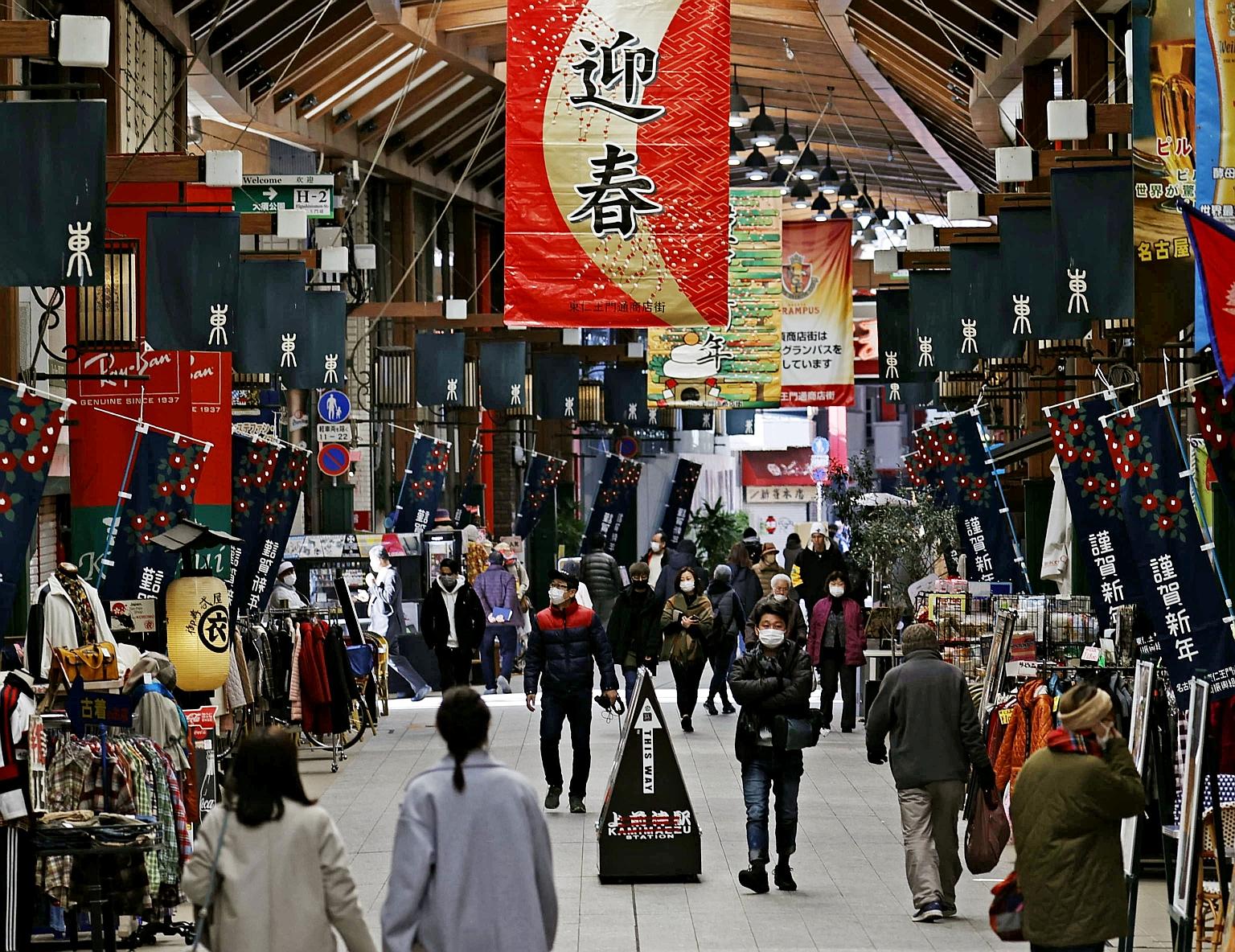Coronavirus Asia
Japan extends state of emergency to seven more prefectures
Sign up now: Get insights on Asia's fast-moving developments

Nagoya is one of the major cities in Japan now covered by a state of emergency decree to curb the spread of Covid-19 that has been expanded to the prefectures of Tochigi, Gifu, Aichi, Osaka, Kyoto, Hyogo and Fukuoka.
PHOTO: REUTERS
Japan has expanded its Covid-19 state of emergency to seven more prefectures, covering the major cities of Osaka, Nagoya, Kobe and Fukuoka, in a bid to curb the spread of the coronavirus nationwide.
The measure, announced yesterday, took effect at midnight. The seven areas join Tokyo and three neighbouring prefectures, where the emergency came into force last Friday and will last until Feb 7.
To fight the surge in cases, Japan yesterday also enacted a blanket entry ban on all non-resident foreign nationals until Feb 7. This covers the 11 regions with which the country has established business track arrangements, including China, Singapore and South Korea.
"We need people to seriously rethink their actions, especially youth in their 20s or 30s who form the largest group of infections. Many may be asymptomatic and going out without realising they are spreading the virus," Prime Minister Yoshihide Suga told a news conference.
"This is the reality that we face now," he said, adding that it was critical to send a strong message to persuade people to change their behaviour.
The measure came as Japan registered at least 97 Covid-19 deaths yesterday, the highest single-day toll thus far.
The number of patients in serious condition rose to a new high of 900, while at least 5,845 fresh infections were logged nationwide.
Japan Medical Association president Toshio Nakagawa, in a separate news conference, said the government should not hesitate to consider a national emergency, noting that hospitals are already overburdened to the point of collapse.
Still, Economy Minister Yasutoshi Nishimura, Japan's point man for Covid-19 strategy, told Parliament that there was no plan to extend the emergency declaration nationwide.
Yesterday, Japan crossed the 300,000 mark in the total number of infections. It had taken 50 days for the tally to climb from 100,000 to 200,000, but just 23 days to surge past 300,000.
The latest measure places 11 of Japan's 47 prefectures under a state of emergency, covering a total of 70.2 million people, or 55.9 per cent of the overall population.
It was enacted last Friday in Tokyo, Chiba, Saitama and Kanagawa, and has been expanded to cover Tochigi, Gifu, Aichi (where Nagoya is located), Osaka, Kyoto, Hyogo (where Kobe is situated), and Fukuoka.
Separately, Miyazaki and Kumamoto prefectures on the south-western island of Kyushu have issued their own emergency declarations. Mie prefecture, in central Japan, is set to follow suit today.
The prefectures' declarations are not legally binding - unlike the national decree - but bypass the bureaucracy involved. Local leaders said the moves were necessary to emphasise the health risks.
Despite the deteriorating Covid-19 situation and the fast-waning support for the Olympic Games this year, top government spokesman Katsunobu Kato said yesterday that Japan was continuing preparations for the Games this summer.
Three separate media polls last weekend showed eight in 10 Japanese were against the Games taking place, while disapproval for Mr Suga's Cabinet exceeded support.
Japan has been relying on people to exercise social responsibility since the pandemic began. But limits to this approach have become more evident, and the government is planning new laws to include punitive measures.
Among the measures being planned are penalties for confirmed Covid-19 patients who refuse to be hospitalised, punishments for those who lie or refuse to answer questions pertaining to epidemiological investigations, and fines for businesses that refuse to heed requested curfews.
Japan also plans to disclose the names of those who breach the 14-day quarantine, as well as revoke foreigners' resident status if they do not quarantine, Kyodo News reported.
Mindful of the inevitable economic impact, Mr Suga is hesitant to impose blanket measures under the latest state of emergency.


